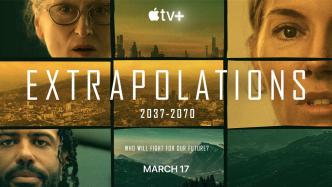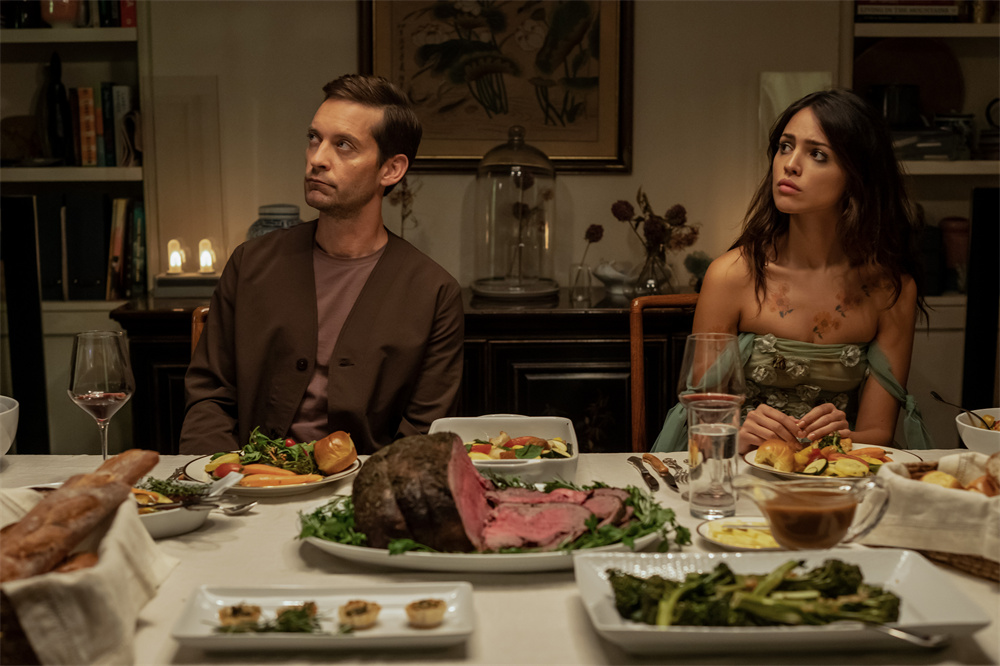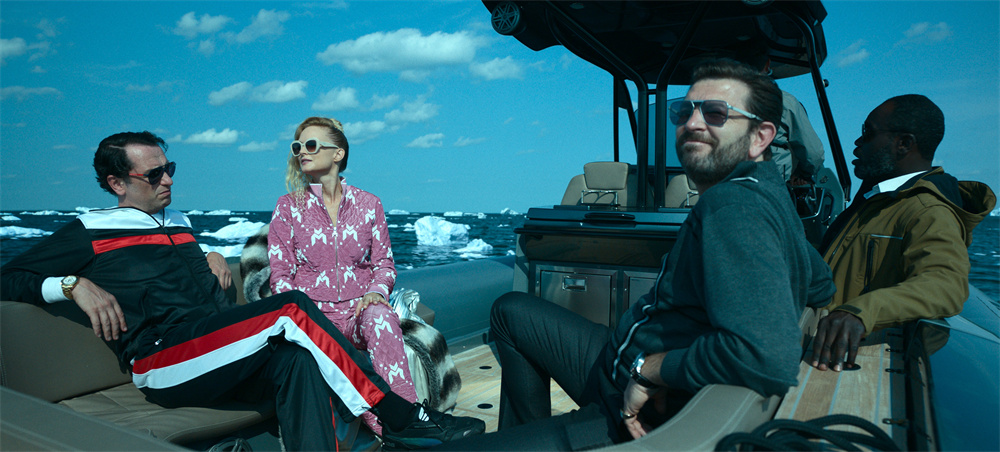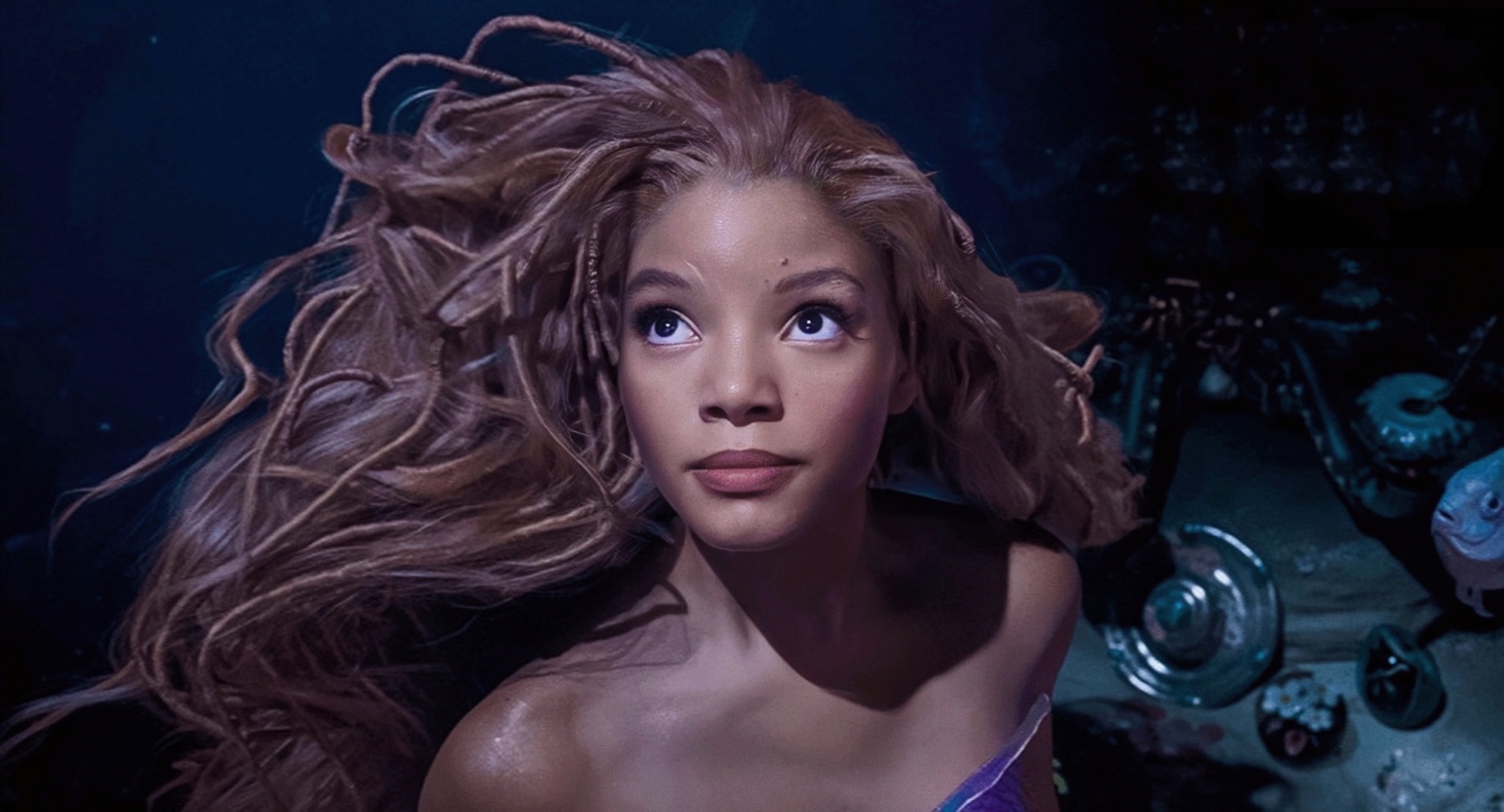
A good work can make fiction seem real. The bad ones are just the opposite, and they can turn the real ones into fake ones. Apple TV+'s Extrapolations unfortunately falls into the latter category. The splendor of the stars cannot save it from its poverty. It turns the real human crisis into a self-indulgent film about a small group of people's self-indulgence, self-touching and fantasy redemption.

"Extrapolation" poster
From its first episode, "Extrapolation" has the air of a climate disaster missionary film. The disaster images brought about by global warming are used to pave the way, the hazy air caused by wildfires and the cold technological sense of affluent life constitute the basic tone of this drama. The quest for clarity, calm and distance begins by erecting a barrier of safety in front of the audience. It makes it irrelevant whatever happens in the play and suggests to the audience that danger can be isolated. The safety of the audience is comparable to the female scientist who takes a helicopter to work in the play, the Jewish rabbi who is rescued by a helicopter from the flood, the rich man who takes a private jet to the North Pole, and the tech giant who rides through the demonstrators in his car.
This barrier can still be regarded as the basic interest of Apple. The roughness and snobbery of the script is the main reason why this drama with a good theme, a good lineup, and a good budget hit the street.
The screenwriter's vision is to allow some independent stories that take place between 2037-2070 to show the impact of climate change on some "ordinary people". The first episode spreads out various clues, and from the second episode, each episode focuses on a clue and the fate of a group of characters. As the plot unfolds, there will be connections between characters who don't know each other. Although in different identities, they will walk down the timeline in the deepening climate catastrophe.

"Extrapolation" stills
It has a great capacity, but it is opened in the wrong way because of a simplistic mistake. The script of "Extrapolation" is like a middle school student debate contest. The debaters on the positive side present data and cases, and make future deduction on the timeline, telling the audience how urgent the threat of global warming is. The opposing debaters are a group of selfish ghosts who only care about immediate and personal happiness, and believe that the future of human beings is always a dead end, and it is better to make money while alive. The screenwriter is completely on the right side, and firmly believes that the audience of this show must be the same (otherwise it is a big treason).
The show's attitude toward climate change is as clear as a marching slogan. Its vision of the future of mankind is as irrefutable as a tragic oracle. The descriptions of the opposing debaters (mainly businessmen and politicians) are so rigid, and the monsters in "Ultraman" have richer settings and humanity than them. Global warming, climate catastrophe, "Extrapolation" puts all the blame on businessmen and politicians. They are sinister, cunning, shallow and boring, and they are not human at all.

"Extrapolation" stills
So, it might as well abstract the businessmen and politicians into the cloud monsters in Don't Look Up, so that more attention can be paid to the flesh-and-blood characters. But the screenwriter wants to spend time on these Facebook characters, making every appearance of them very difficult. The screenwriters failed to understand that not all viewers are willing to waste good TV time revisiting these images that were created to vent their anger in order to watch them dig their own graves for solace.
"Extrapolation" also looks down on those who take to the streets to protest climate change. No matter what form they appear in the show—a black young woman giving a speech in holograms, or a man of unknown ethnicity who sets himself on fire—they all look like a bunch of ants. These middle- and lower-class people want to save themselves, but their methods are crude and will only make people laugh. The way they were photographed was exactly like watching a parade on the street from a high-rise apartment. Although I couldn't say no, I felt disdainful.
The screenwriter uses these "fake" people to set off the real protagonist in his mind-a professional from the upper middle class. The first three episodes feature a zoologist and a rabbi (both from wealthy and powerful families). These characters have a big part in hunting down endangered animals and evangelizing leftover residents in an increasingly hotter climate. They suffer. It is the capitalists and politicians mentioned above that make them suffer.
The roles of these upper-middle-class people have only positive sides and no gray areas. On the surface, they also have pain and struggles, lost their loved ones, suffered setbacks in their careers, and endured the inevitable frustration in a catastrophic environment. But if you take a closer look, you can feel the screenwriter's special care for them. There is no fault of their own, and everything they do is done out of conscience. Climate change, species extinctions, temples being destroyed, loved ones dying, all misfortunes are someone else's fault.
Even their next generation is designed according to the ideal map. The "One Hundred Thousand Whys" Jewish girl is a too typical image. She was born in a wealthy family, cares about the population below the poverty line, and is a staunch environmentalist. This image has now been added "Jews who questioned God". God did not give an answer, but God finally saved the girl from the fire and water.
The lack of imagination shown in this play is in line with all aspects of the "white left" thinking limitations. Take this girl as an example. Her character design was originally full of curiosity and critical thinking, with a strong rebellious spirit. But what good question did she ask? They just pestered the rabbi repeatedly: "Why didn't God save us", expressing their indignation against the "bad dad who bribes the government and the bad government that operates on bribes".

"Extrapolation" stills
In favor of these characters, the art of storytelling is thrown out the window. The clues are all spread out on the surface of these characters. All the past and thoughts are clearly explained, without any blank space. Even their future need not worry. No matter what happens, the smoke outside the window, the sweltering heat, or the flood, they can be redeemed.
Scientists reunited with the last humpback whale, rabbis and girls were rescued from hurricanes and floods, and their stories were so consummated that they almost told the audience through loudspeakers: Even if the world is ending, people with a conscience like you are superior People will also be saved.
"Extrapolation" can't even bear to cast a little dust on their lives. Even if the living creatures on the earth are going to destruction, their lives are not slightly depreciated. Everything is new, clean and distanced as always. For them, human beings who are not of the same kind have long been alienated into annoying symbols, just like the bad climate.
Where this drama plays well, a touch of poetry, sadness or black humor is embedded in the sense of cleanliness and distance. The greedy rich businessman was suddenly killed by a walrus in the first episode, the humpback whale speaking in the voice of Meryl Streep in the second episode, and the place of God immersed in the water in the third episode. Efforts made to promote the missionary film temperament of "Extrapolation".

"Extrapolation" stills
But these plots are more like the author ordered the production of artificial intelligence-give me some poetic and sad plots. Meryl Streep's grandma is truly heartbreaking, and she's the human patch that the show lacks. But cutting off her credits has no effect on the whole. Her guest appearance is just a gimmick, a kind of announcement, a side story to fill the time and improve the texture.
Climate issues are hard to shoot. In today's atmosphere in the Western film and television industry, it is hard not to surrender to the tough attitude of eager to stand in line and either. "Extrapolation" completely surrendered, not only did not make the slightest resistance, but also chose the most lazy way.
It regards the complex issue of global warming as the background board of the political declaration, and then divides the characters into two categories: the wrong party and the victim, strongly condemning the former and unconditionally sympathizing with the latter. But it can only take off its hat and salute the latter, and it has not even achieved empathy. It crushes their humanity, rushes to save them, and imagines that the viewer will be satisfied.
So, when these protagonists who are destined to be saved ask: "Who decides which people, which species, and which places are preserved and which are left to be destroyed?" The show gives a very simple answer: If all The human beings are as dry as the characters in the play, so why not destroy them together with other species. No more dilemmas. With the disappearance of human beings, the earth will be able to recover and start a new cycle of life evolution.


